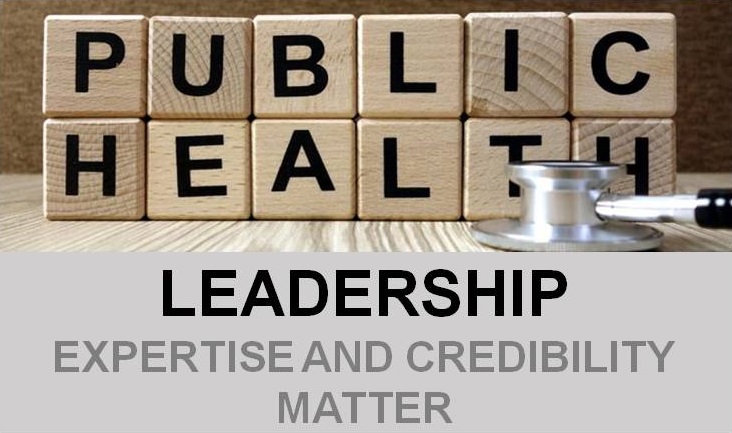Expertise and Credibility Matter in Public Health Leadership
By Adebowale Bello. B.Tech Microbiology, Freelance Health Writer

Public health leadership requires more than political affiliations or popularity—it demands expertise, credibility and a commitment to evidence-based practices. A recent controversy in the United States highlights the potential dangers of ignoring these principles.
Over 75 Nobel laureates have taken a united stand against the nomination of Robert Kennedy Jr. as the Secretary of Health and Human Services (DHHS), citing his lack of qualifications and contentious views on critical health issues. This debate raises significant questions about the intersection of politics, science and public health—a conversation that resonates globally, including in Africa.
The concerns raised by the Nobel laureates, documented in a letter published by the New York Times, revolve around Kennedy's limited experience in health, medicine and public administration. His history as a vocal critic of vaccines, water fluoridation and treatments for diseases like AIDS undermines the very principles of public health.
Vaccines, for instance, have saved millions of lives by preventing diseases such as polio and measles. Questioning their safety without scientific evidence erodes public trust and can lead to vaccine hesitancy—something African countries have grappled with during campaigns against diseases like polio and COVID-19.
Kennedy’s embrace of conspiracy theories further complicates his credibility. Claims that childhood vaccines cause autism or that COVID-19 spares specific ethnic groups lack scientific backing and have been debunked repeatedly. Such rhetoric not only misguides the public but also endangers lives by discouraging proven health interventions.
The role of a public health leader extends beyond administrative duties. It involves championing science, fostering trust in health systems and safeguarding the well-being of citizens. For Africa, where health systems are still evolving and resources are limited, the implications of appointing unqualified leaders can be devastating. Decisions on vaccine rollouts, disease prevention and health education require leaders who base their actions on robust scientific evidence.
The Nobel laureates’ letter underscores this point: placing someone like Kennedy in charge of DHHS would not only jeopardize public health in the U.S but could also weaken America’s global influence in health sciences.
Many African countries rely on international partnerships for funding, research and technical assistance. A leader who undermines science could strain these relationships and disrupt progress in addressing shared challenges such as infectious diseases, maternal health and non-communicable diseases.
The Kennedy controversy offers valuable lessons for African nations. Leadership appointments in health ministries, public health agencies and research institutions must prioritize expertise and a track record of evidence-based decision-making. Politicizing these roles or prioritizing loyalty over qualifications can derail progress and erode public trust in health systems.
Africa has witnessed similar challenges, such as delays in implementing life-saving interventions due to misinformation or inadequate leadership. For instance, vaccine hesitancy fueled by conspiracy theories has slowed immunization campaigns in some countries, allowing preventable diseases to resurge. Strong, credible leadership is essential to counter such challenges and guide nations toward improved health outcomes.
The intersection of science and politics is inevitable, as policies shape the funding, implementation and success of public health initiatives. However, science must guide policy—not the other way around.
Dr. Harold Varmus, a Nobel laureate, aptly noted that science depends on political structures. For science to thrive, governments must create an enabling environment that respects and supports research, innovation and evidence-based policies.
African governments can draw inspiration from this principle by increasing investment in health research, strengthening partnerships with global institutions and ensuring that policies align with scientific evidence. Doing so will not only improve health outcomes but also foster economic growth and resilience against health emergencies.
The opposition to Robert Kennedy Jr.’s nomination is a powerful reminder of what is at stake when public health leadership is compromised. For Africa, the message is clear: effective leadership requires more than good intentions; it demands expertise, integrity and an unwavering commitment to science. As nations work to build stronger health systems, let us prioritize leaders who inspire trust, champion evidence-based practices and place the well-being of citizens above all else.
The words of Dr. Richard Roberts, one of the Nobel laureates, resonate deeply: “We really do want to protect the health of our citizens.” This aspiration should guide not just the U.S but all nations striving for a healthier, more equitable future.
Source: New York Times
Update: Mr Robert F. Kennedy Jr., vocal vaccine skeptic and activist lawyer, was confirmed Thursday, February 13 as the latest US health secretary in President Trump's Administration by a vote largely on party lines. He will head the $1.7 trillion U.S. Health and Human Services Agency that includes the NIH, CDC. FDA and the Centre for Medicare and Medicaid Services (CMS) among several others.
Published: January 20, 2025
Updated: February 19, 2025
© 2025. Datelinehealth Africa Inc. All rights reserved.
Permission is given to copy, use and share content for non-commercial purposes without alteration or modification and subject to attribution as to source.
DATELINEHEALTH AFRICA INC., is a digital publisher for informational and educational purposes and does not offer personal medical care and advice. If you have a medical problem needing routine or emergency attention, call your doctor or local emergency services immediately, or visit the nearest emergency room or the nearest hospital. You should consult your professional healthcare provider before starting any nutrition, diet, exercise, fitness, medical or wellness program mentioned or referenced in the DatelinehealthAfrica website. Click here for more disclaimer notice.